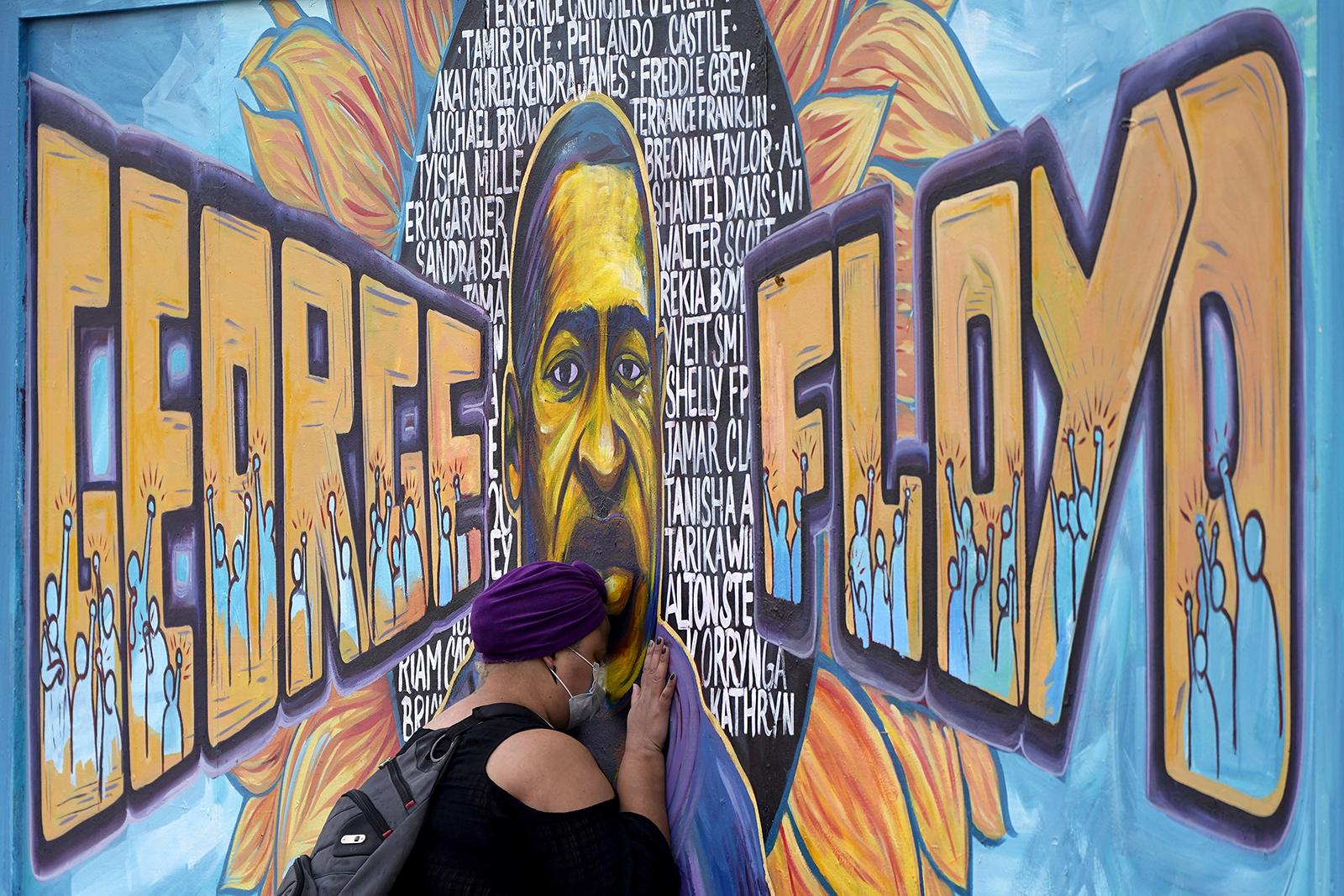(RNS) — I’ve been on the road a lot the last month, and in the wake of my travels, I’ve been thinking about the novelty of the experience against the backdrop of the pandemic. What was routine now seems exotic; what was comfortable seems unsettling.
I’ve seen a lot of discussion about the loss of small talk skills and other social graces during the lockdowns and social distancing of the last two years. But as my commute has expanded over the last month beyond my small oak writing desk in the corner of our guest room to PRRI’s downtown offices twice a week, and as I’ve slowly restarted travel for in-person speaking engagements, I’m realizing my basic ability to keep up with my possessions as my body is moving through space has severely atrophied.
I seem to have lost my ability to move competently and confidently through the world. Here’s a sampling of what I’ve lost in the last month: a suit jacket in a rental car (recovered!), my favorite lightweight down jacket on an airplane (I hope it has found a good new home), my laptop (alas, waiting for me on my dining table when I returned), my iPhone (it took a long ride to the end of the Red Line, where I met it).
Now, it’s true that I don’t have a spotless track record when it comes to keeping up with my possessions. I lost no fewer than five winter jackets in the pubescent fog of eighth grade. And as an adult, I’ve lost iPhones at the Great Wall of China and the reflecting pool of the Jefferson Memorial. I like to imagine these lost electronic companions — faint blue dots that my mind adds to the FindMy map — as testaments to my past presence, much like the anonymous stone you might add to a cairn on a hiking trail, or like artifacts of tourist culture awaiting some future archaeologist.
The frequency of my recent misplacements, however, signals something more than just bad luck. I’ve lost touch with that inner voice who chides, “Don’t set your phone down on the seat;” chimes, “Didn’t you have a jacket?” and chants “Wallet, keys, phone, laptop, pens.” That guardian now seems distant, not unlike some social ties with family and friends that have been stretched thin by the pandemic.
But this rocky re-entry to the spinning world has also helped me appreciate some gifts of the pandemic, at least for those like me who are fortunate enough to be able to work remotely. With the shattering of my routines and assumptions, I’ve become aware of unnecessary encumbrances that are obstacles — as my cousin Carl, who performs old-time mountain music, would put it — to “moving lightly through this world.” (Watch Carl sing it here.)
Over the last two years, there have probably been more days than not that I haven’t worn shoes. Dress shoes, especially, now seem like an experiment contrived by some sadistic cosmic scientist. I’ve worn the same black belt every day for two years. If I don’t commute into the city, I have time to exercise. I can cut my own hair. If you bike somewhere, you better understand place. Cooking something decent isn’t always time-prohibitive.
I also believe the ruptures of the last two years hold deeper lessons, especially for those of us who grew up identifying as white and Christian. The pandemic has exposed ways we’ve reflexively clung to all kinds of assumptions about the trappings and structures of pre-pandemic everyday routines; and the clarion calls for racial justice in the wake of George Floyd’s murder have exposed the ways white supremacy still haunts our laws, our institutions and our lives.

Damarra Atkins pays her respects to George Floyd at a mural at George Floyd Square on April 23, 2021, in Minneapolis. (AP Photo/Julio Cortez)
Moreover, the 2021 backlash to the Black Lives Matter movement — concretely expressed in the elevation of “white discomfort” as a novel definition of discrimination — has revealed the biggest encumbrance of all for white Christians: insistence on our own innocence.
This piercing insight from James Baldwin in “The Fire Next Time” gets to the heart of the matter:
The American Negro has the great advantage of having never believed that collection of myths to which white Americans cling: that their ancestors were all freedom-loving heroes, that they were born in the greatest country the world has ever seen, or that Americans are invincible in battle and wise in peace, that Americans have always dealt honorably with Mexicans and Indians and all other neighbors or inferiors … The tendency has really been, insofar as this was possible, to dismiss white people as the slightly mad victims of their own brainwashing.
These white American myths — staples of former President Trump’s rallies and rhetoric — are the mark not of a great people but of fragile egos who refuse to grow out of an adolescent naiveté. This untenable version of patriotism is an encumbrance not only to achieving our democracy but to becoming authentically human. And, I would add, such indignant insistence on our own innocence is a barrier to Christian growth and discipleship. It is antithetical to the core Christian teaching — contained in one of the first Bible verses I was taught to memorize — that we have all sinned and fallen short of what God expects of us.
Prodded along by cynical GOP operatives searching for a mid-term election weapon, white conservative Christians are expending enormous energy decrying critical race theory, attempting to restrict how the history of racism in the U.S. is being taught to our kids and banning or burning books on these topics. These are desperate ploys to cling to white innocence as the rising waters of counter-evidence — pent up for centuries by a dam of white Christian power that is no longer holding — are lapping at our ears.
This persistent denial of our own culpability has weighted us down, and today it threatens to drown us all. But these troubling tendencies also remind me there is another path, one spelled out fairly clearly in the New Testament (Hebrews 12:1-2, NRSV):
Therefore, since we are surrounded by so great a cloud of witnesses, let us also lay aside every weight and the sin that clings so closely, and let us run with perseverance the race that is set before us, looking to Jesus the pioneer and perfecter of our faith, who for the sake of the joy that was set before him endured the cross, disregarding its shame, and has taken his seat at the right hand of the throne of God.
As the racial, ethnic and religious demographics of the country continue to shift, preserving the myth of white Christian America will take increasingly heavy-handed efforts by a shrinking and aging group of white conservative Christians. White conservative Christians can continue down this path, attempting to initiate the next generation into this Big Lie about who we are and how we got here. (We already have evidence, however, that many of our children and grandchildren are rejecting this inheritance.)
But the soft cultural power that secured the dominance of this false narrative in the 20th century will be insufficient in the 21st. With white Christians comprising only 44% of the country, preserving a narrative that continues to protect white supremacy and Christian nationalism will require increasingly anti-democratic and violent means. The next mile down this road will be littered not only with the bodies of political enemies but with the ruins of our democratic institutions.
The world is certainly watching how the United States navigates this transition in the life of our nation. If we white Christians lay aside the exhausting, never-ending efforts to maintain our innocence and permit honest conversations about our past, we might just experience another New Testament promise: that the truth sets us free.

Robert P. Jones. Photo courtesy of PRRI
(Robert P. Jones is CEO and founder of the Public Religion Research Institute and the author of “White Too Long: The Legacy of White Supremacy in American Christianity.” This article was originally published on Jones’ Substack #WhiteTooLong. Read more at robertpjones.substack.com. The views expressed in this commentary do not necessarily reflect those of Religion News Service.)





